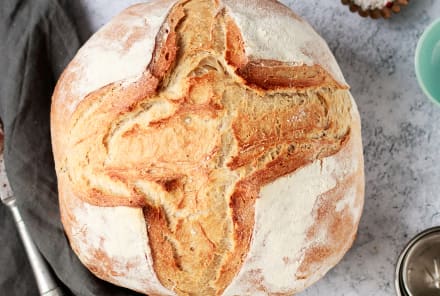Advertisement

You know that warm, expansive feeling that rolls over you when you pay for a stranger’s soy latte, let a few cars merge in front of you during rush hour, or toss a five spot into a street musician’s guitar case? Turns out, the buzz we get from giving without expecting anything in return is quite unique.
In a new study1, researchers looked at two distinct types of kindness to see how they affect the human brain. “Strategic kindness” occurs when someone garners a reward from performing a kind act, such as a small gift, reciprocity, or public recognition, whereas “altruistic kindness” refers to a kindness given with no expectation of reward.
For the study, researchers combed over more than 1,100 fMRI brain scans from previous studies on people making “kind decisions” to see if the brain looked different depending on whether the kind act was strategic or altruistic. While many of the same parts of the brain lit up for both types of giving, the scientists did note some distinct differences. In participants who practiced strategic kindness, the regions of the brain associated with rewards were more active than those practicing altruistic kindness. Meanwhile, those who performed purely altruistic acts showed more activity in the subgenual anterior cingulate cortex, a part of the brain that deals with emotional behavior.
It’s still unclear why the two different motivations activate different parts of the brain, but as the authors note in the paper, “that any region is more involved in altruistic decisions suggests that there is something additive and special about giving when the only benefit is a warm glow.”
“The decision to share resources is a cornerstone of any cooperative society,” said Jo Cutler, a Ph.D. candidate at the University of Sussex and one of the lead study authors, in a press release. “We know that people can choose to be kind because they like feeling like they are a ‘good person’ but also that people can choose to be kind when they think there might be something ‘in it’ for them, such as a returned favour or improved reputation. Some people might say that ‘why’ we give does not matter, as long as we do. However, what motivates us to be kind is both fascinating and important. If, for example, governments can understand why people might give when there's nothing in it for them, then they can understand how to encourage people to volunteer, donate to charity, or support others in their community.”
For example, Cutler suggests that perhaps charities should avoid offering some small gift of thanks to its donors as a token gesture because it might “undermine” their feelings of being good, kindhearted people.
“Sending small gifts in return for a monthly donation could change donors' perceptions of their motivation from altruistic to transactional,” Cutler said. “In doing so, charities might also inadvertently replace the warm glow feeling with a sense of having had a bad deal.”
While the researchers continue to hash out the details, one thing’s for certain: Making a donation to your favorite charity, giving your co-worker an unexpected compliment, or feeding a few quarters to an empty parking meter can all light you up in a totally unique way—and improve someone else’s day, too.
Watch Next
Enjoy some of our favorite clips from classes
Enjoy some of our favorite clips from classes
What Is Meditation?
Mindfulness/Spirituality | Light Watkins
Box Breathing
Mindfulness/Spirituality | Gwen Dittmar
What Breathwork Can Address
Mindfulness/Spirituality | Gwen Dittmar
The 8 Limbs of Yoga - What is Asana?
Yoga | Caley Alyssa
Two Standing Postures to Open Up Tight Hips
Yoga | Caley Alyssa
How Plants Can Optimize Athletic Performance
Nutrition | Rich Roll
What to Eat Before a Workout
Nutrition | Rich Roll
How Ayurveda Helps Us Navigate Modern Life
Nutrition | Sahara Rose
Messages About Love & Relationships
Love & Relationships | Esther Perel
Love Languages
Love & Relationships | Esther Perel














